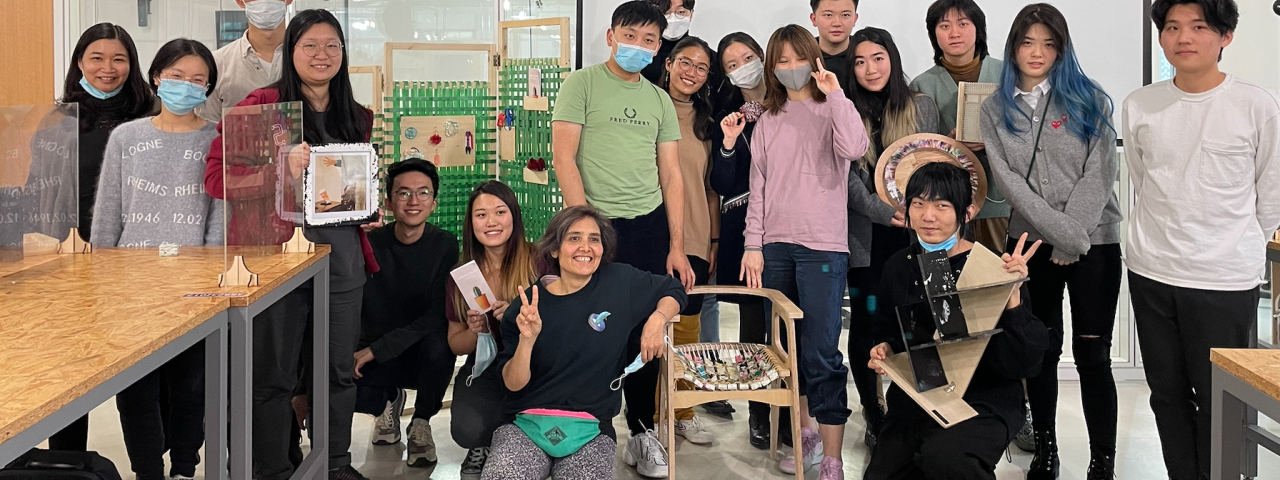
A trolley to make it easier for ayis to carry heavy tools. Space-saving bookshelves for the Campus Store. A space divider made of recycled plastic strips to create a break room for the cafeteria staff. These are some of the solutions students in the Interactive Media Arts and Community Engaged Learning (CEL) class, Remade in China, designed to make life a bit easier for NYU Shanghai workers. Taught by Assistant Arts Professor of IMA Marcela Godoy, Remade in China this semester is a service-learning course under the Dean’s Service Scholars Program that offers students a chance to explore innovative ways to transform discarded materials into products that can respond to the needs and improve the lives of specific community members.
COVID-19 pandemic control restrictions forced the CEL Office and Professor Godoy to change the original plan -- where students would work with a neighboring community -- to addressing often-overlooked issues in the Academic Building.
The 16 students established relationships with staff from the Campus Store and cafeteria, as well as the custodial staff “ayis,” interviewing them about their work and ongoing challenges, and then brainstorming ways to use recycled materials to help them. “It reminds us that we don’t need to look far for things that can be improved in our own surrounding environment,” said Qian Chunhao, CEL Coordinator.
One group of students noticed that the Campus Store had no room to display books on its main floor, and was forced to display far up on the wall, where they could be easily missed. So they decided to make space-saving bookshelves from PLA plastic, a polyester made from renewable resources, so that the books could be moved to a more obvious spot on the first floor.
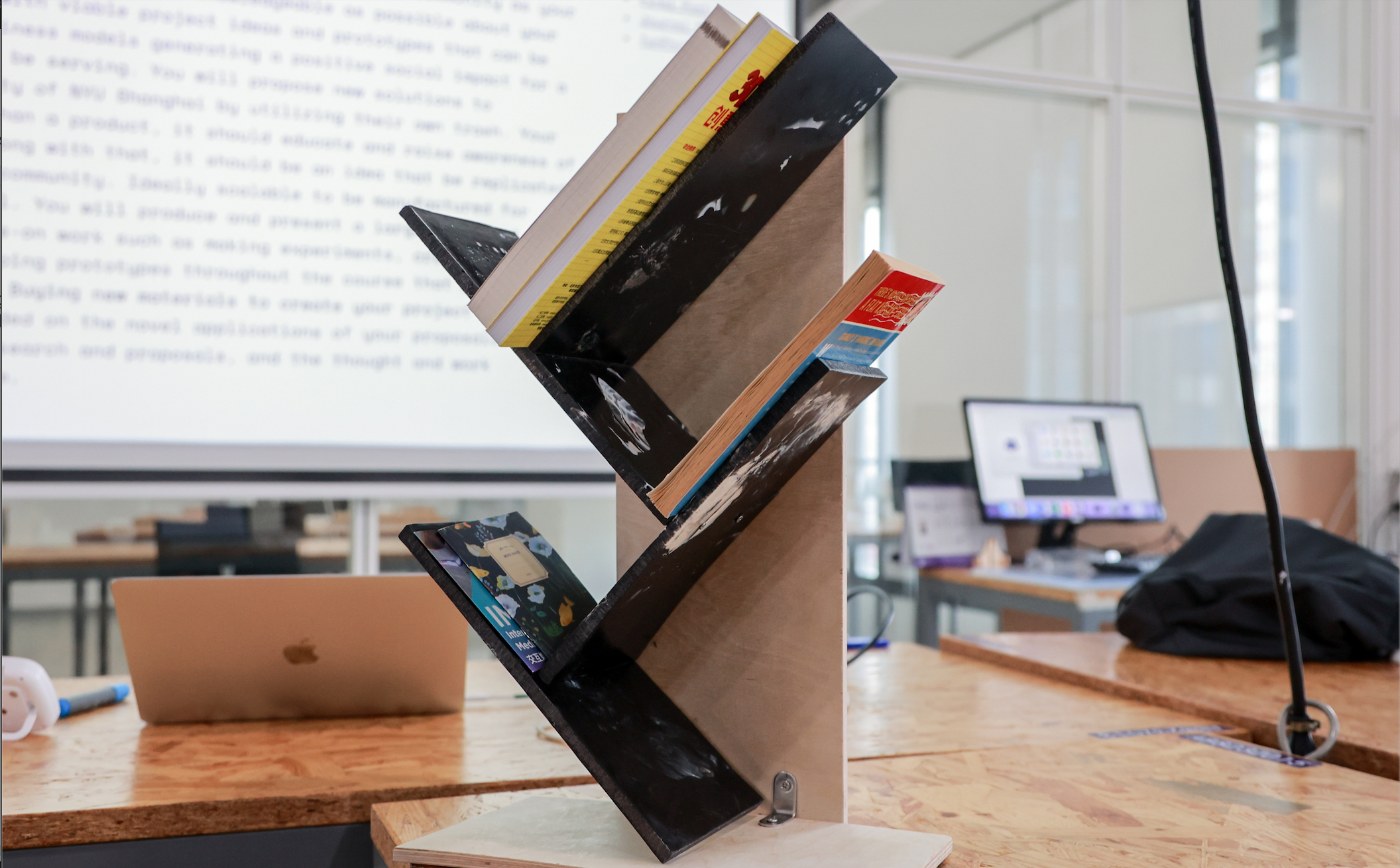
A bookshelf students made for Campus Store.
“The bookshelves are very creative, easy to use, and useful,” said Hong Bo, manager at the campus store. “I think this is a very good course because it connects students with the NYU Shanghai community.”
After interviewing the sixth floor’s Ayi Yin, students learned that she had to spend an extra one to two hours a day re-sorting garbage that students and staff had failed to dispose of properly. So the students decided to make picture frames from PP plastic to hang above the garbage bins to remind community members to sort their trash more carefully.
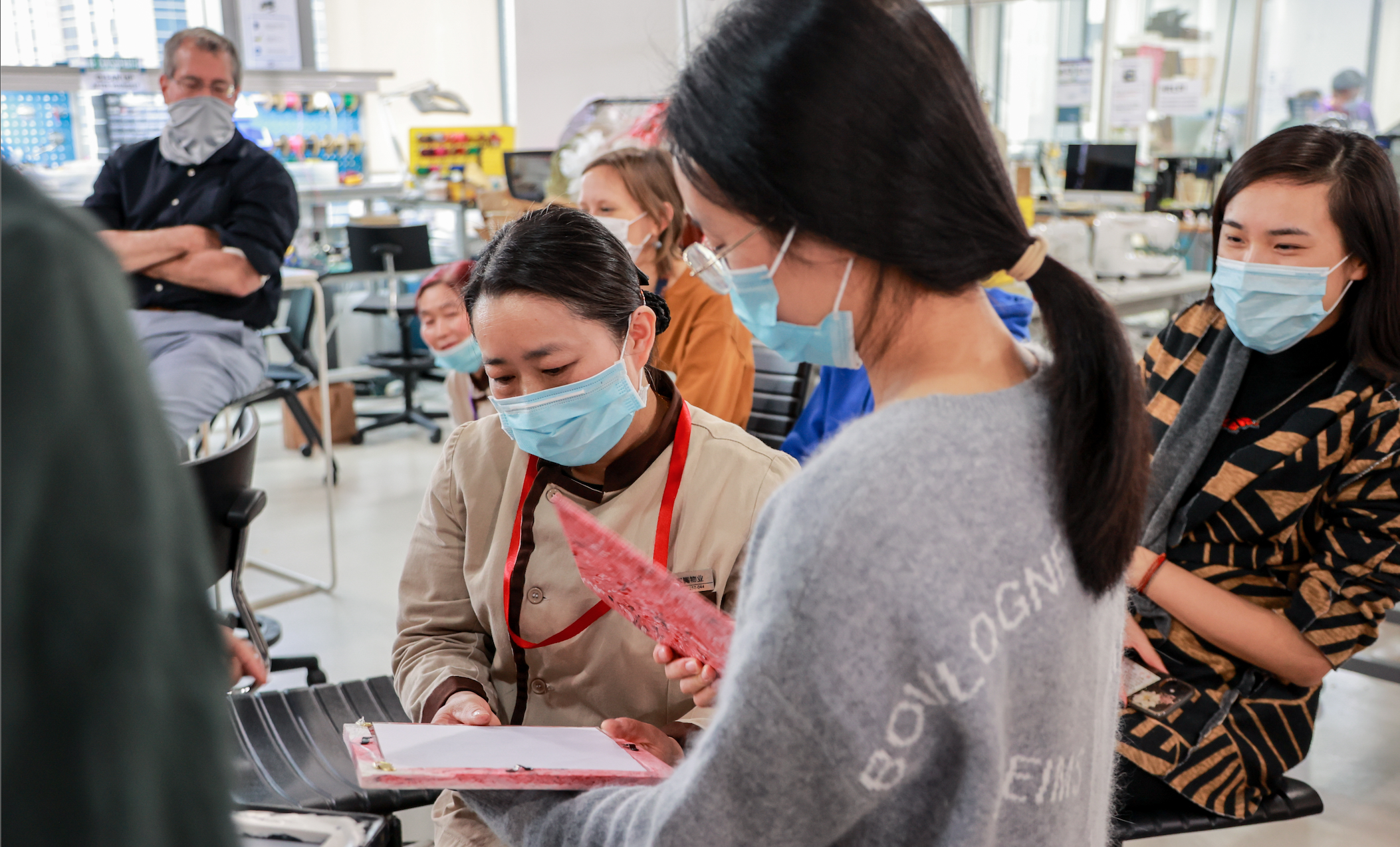
Ayi Yin received a picture frame the students made as a gift.
After observing and talking to the staff in the cafeteria, another group of three decided to make a 200cm x 200cm divider to create a break room space for staff to relax between meals. They tried three kinds of materials and chose discarded plastic strips from a construction site in Yangpu district to weave into a divider on a wooden frame. They added pockets and hangers to the frame for staff to hold small accessories. The divider will be installed in the cafeteria until the end of the month, when students will seek feedback from community members to decide whether to keep the divider there permanently.
“For a very hands-on class like this, you really have to practice a lot. Then you’ll learn how to improve it,” Kong Xiaoyan ’21 said.
“I really like one group’s idea of following up because this is not just a project for a class,” said Professor Godoy. “Students feel closer to their community partners after this class and want to follow up and continue with the project afterwards.”
Another group of students also created products to assist the cafeteria staff: a rolling massage ball and a chair made of wood and 60 recycled plastic bags.
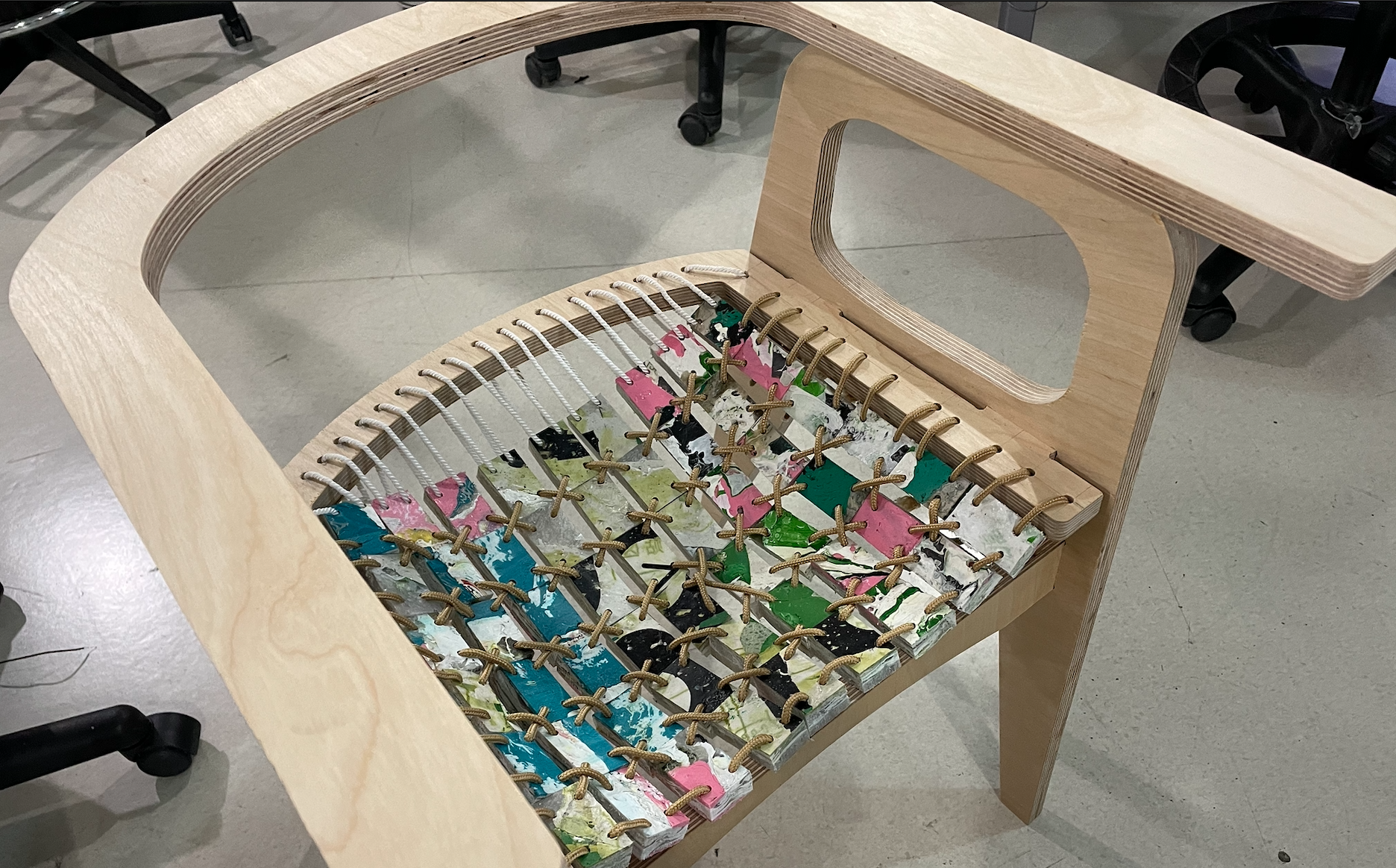
A chair made from wood and 60 recycled bags for cafeteria staff.
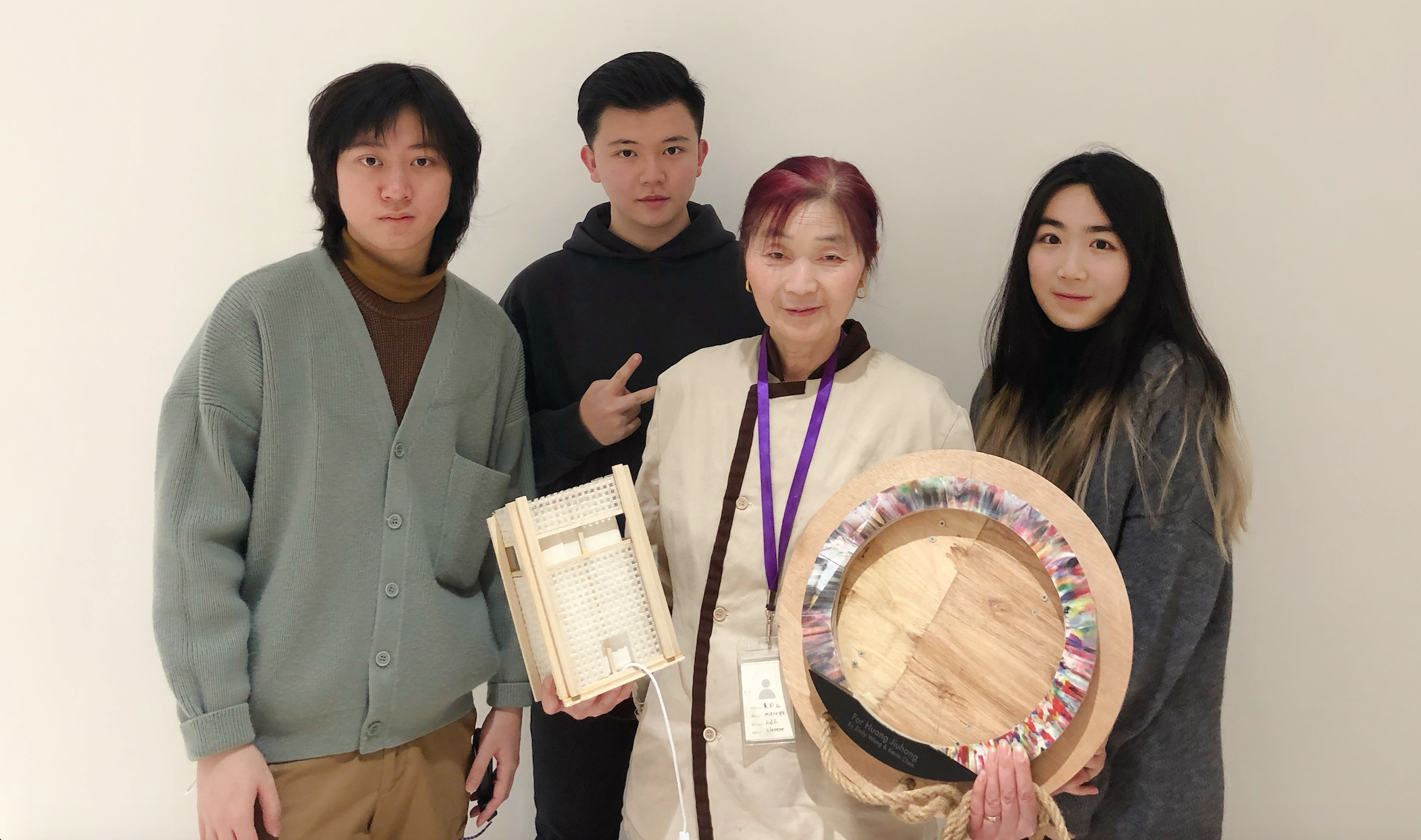
Ayi Huang holding the trolley and the lamp Tang Mou ’23 (first left), Chen Kaiwen ’23 (second left), and Wang Yimin ’23 made for her.
“The previous projects I created in high school were for myself,” said Chen Kaiwen NYU ’23. “This time, we’re doing this for someone else. So we need to put ourselves in other people’s shoes. We’re combining recycling with community work, which is a great educational opportunity because we’re working for someone else. We learned empathy during the process.”

